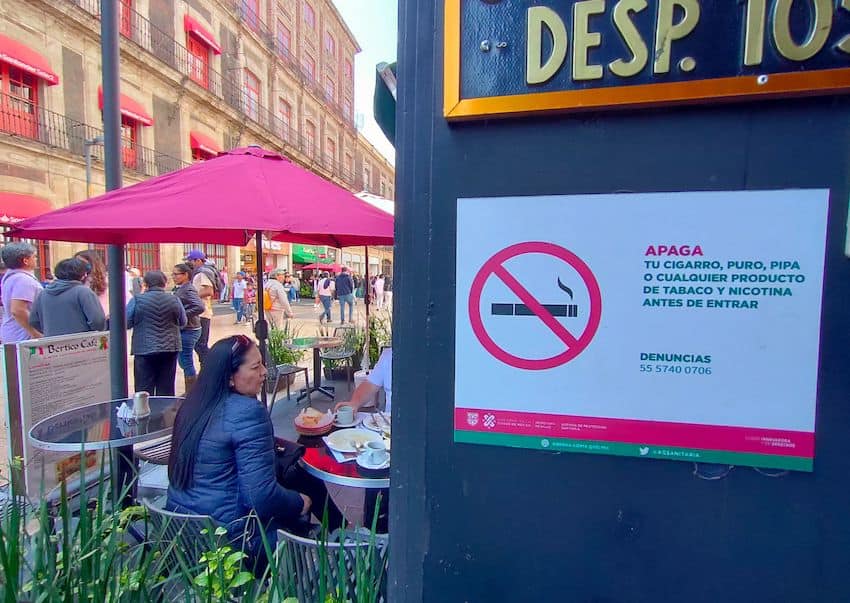Restaurant association obtains exemption from anti-smoking law

The national restaurant association Canirac has obtained a definitive suspension against the federal anti-smoking law that went into effect on Jan. 15, and banned lighting up in public and open spaces.
The General Law for Tobacco Control explicitly prohibits people from smoking in certain outdoor public spaces, such as parks, and restricts restaurants from serving food or beverages in designated smoking areas. According to the news site Expansión, restaurants reported a 30% decrease in consumption due to the law’s implementation.
Under the law, anyone who smokes in prohibited areas can be subject to fines of up to $10,374 pesos (US $551.89) or be detained for up to 36 hours. Restaurants not in compliance can suffer economic sanctions or face temporary or permanent closure.
A collegiate court in administrative matters granted Canirac the suspension on Thursday, protecting the association’s member restaurants from the law’s effects. The chamber argued that its statutes give it the power to defend, represent and promote the interests of the restaurant industry.
“One of the main objectives of the Chamber is to look after the interests of our affiliates and the restaurant sector. Today more than ever, we are clear that we are a strong and united industry. This suspension is the result of the joint work that we carry out every day,” said Germán González, Canirac’s national president.
Under the terms of the suspension, restaurants that can demonstrate their affiliation to Canirac and that currently have an operating license to comply with the tobacco-use regulations prior to the reform can serve food and beverages in authorized smoking areas, according to the provisions that existed before the decree went into effect.

“The restaurant industry already complied with regulations that safeguard the right to protect the health of nonsmokers and a healthy smoke-free environment while respecting the rights of smokers,” González added.
Rather than protecting nonsmokers, Canirac argues, the law generates prohibitions and restrictions that limit human rights, forcing restaurants and other establishments to discriminate and deny customer service.
“The established regulatory system [before the decree] complied with the purposes of the decree in a way that is less restrictive of other rights,” the Canirac president emphasized.
There have been a wave of lawsuits by businesses arguing that the new restrictions negatively impact their operations. However, civil society and consumer advocacy groups have argued that the law should be upheld.
According to the nonprofit Consumer Power (El Poder del Consumidor), 63,200 people in Mexico die from smoking-related illnesses each year.
With reports from Expansión and Milenio
Source: Mexico News Daily

